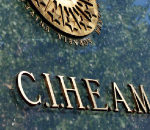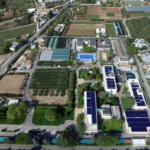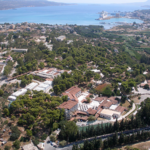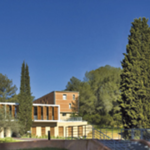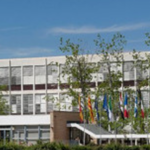“Our development cooperation projects are tools for an inclusive development that takes into account populations and rural and coastal territories of the Mediterranean.”
Development for cooperation
The CIHEAM Montpellier's Development activity is structured around a permanent team and associated experts recruited as part of the projects.
Through our development cooperation programs:
- We mobilize participatory approaches to create synergies between local and regional actors, as well as field operators and decision-makers.
- We are consolidating dialogue and strengthening know-how.
- We support and accompany innovation in the service of a more inclusive and sustainable economy. The priority issue is the creation of jobs with high social and environmental value, by ensuring synergies between actors and sectors and designing smart solutions capable of meeting the challenges faced by agriculture and the rural and coastal areas of the Mediterranean.
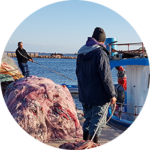
Each country has its own pecularities and they must be taken into account in order to act effectively. The diversity and experience of our network of actors and experts in the Mediterranean is an asset in this work.
Topical issues
Our development projects are in direct contact with contemporaries issues; at the interface of local initiatives and national and regional policies, and contribute to the achievement of the SDGs.
Zero waste, whether in terms of food, natural resources, or knowledge:
- The ECOWASTE 4 FOOD project, conducted with seven regional authorities in Europe, has made it possible to improve the consideration of food waste in regional operational programs and to promote dialogue between actors and innovation as vectors of behavior change.
- The IPAUP and RUR'UP projects aim to promote pedagogical innovation in the service of the attractiveness of agricultural training with strong social and environmental responsibility (urban and peri-urban agriculture, peripheral rural areas with high natural and territorial value).
Sustainable agricultural and food systems:
- HealthyFoodAfrica aims to improve access to safe and nutritious food in Africa, in a sustainable, socio-economically and environmentally resilient way.
- Focused on the Mediterranean, the LAB4SUPPLY and MED-LINKS projects aim to provide small producers with tailored and effective solutions that improve efficiency, sustainability and equity along fruit and vegetable supply chains.
- The aims of the Mixed Local Food Technological Network are to include the development and change of scale of short local food chains with a view to i) consolidating the farms and businesses involved; ii) contribution to the agro-ecological and food transition and to the resilience of the territories.
- The MED-Amin Network is a monitoring network of agricultural markets and associated food systems to contribute to food security in the Mediterranean. It focuses in particular on five cereals (common wheat and durum wheat, barley, maize and rice) essential to the food security of the countries of this region. The transparency and quality of shared data contribute to the resilience of food systems in Mediterranean countries.
Attractive rural areas to live and work in:
- The DEVLOK project accompanies the populations and local authorities of the Kerkennah islands in the consolidation of a job-creating development strategy through the sustainable development of land and marine resources.
- In connection with the European Commission, the SHERPA project aims to bring together relevant knowledge and reflections capable of contributing to the formulation of recommendations for future policies concerning rural areas in the EU.
- The HASAD project has made it possible to create and make operational agricultural service centers in the regions of Akkar and Baalbeck-Hermel in Lebanon, as support for the sustainable agricultural development of these territories.
Risk prevention and tension resolution:
- The FEBSMed project, "Let's promote the Blue Solidarity Economy in the Mediterranean", aims to promote an exit from the socio-economic crisis generated by Covid-19 by promoting the Blue Solidarity Economy (BSE) as a resilient and sustainable.
- With the projections of climate change in the Mediterranean as a reference, the SUPMed project aims to formulate collective and contextualized strategies to promote resilient and sustainable agricultural production in Mediterranean rural areas.
- The CIAP project aims to strengthen forecasting capacities in the Mediterranean region by exploring innovative methods to develop an early warning and food crisis prevention system in the Mediterranean. The first study aims to identify and link “unconventional” users and providers of early warning data in Lebanon and Tunisia.


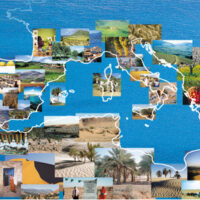 CIHEAM MontpellierOur vision is that of a Mediterranean basin characterised by a spirit of cooperation.
CIHEAM MontpellierOur vision is that of a Mediterranean basin characterised by a spirit of cooperation.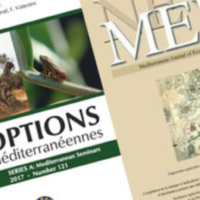 CIHEAM publicationsOur publications and communication tools aim to facilitate decision-making processes for political, economic and agricultural actors in the Mediterranean region
CIHEAM publicationsOur publications and communication tools aim to facilitate decision-making processes for political, economic and agricultural actors in the Mediterranean region News and events
News and events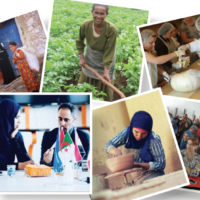 Press review (Scoop.it)
Press review (Scoop.it) Master programmesThe CIHEAM Montpellier stands for both personalised accompaniment and international openness.
Master programmesThe CIHEAM Montpellier stands for both personalised accompaniment and international openness.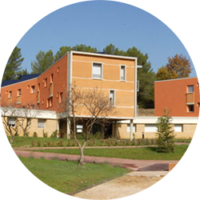 Campus & student lifeSince 1962, almost 95% of our foreign students have been granted accommodation on site.
Campus & student lifeSince 1962, almost 95% of our foreign students have been granted accommodation on site.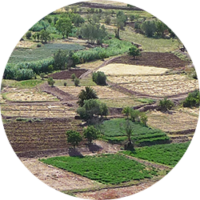 Doctoral platformShaping the scientists of tomorrow through research training… A natural commitment of the CIHEAM Montpellier
Doctoral platformShaping the scientists of tomorrow through research training… A natural commitment of the CIHEAM Montpellier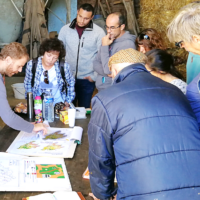 ProjectsOur research and cooperation projects are tools for inclusive development, they take into account the populations and rural and coastal territories of the Mediterranean.
ProjectsOur research and cooperation projects are tools for inclusive development, they take into account the populations and rural and coastal territories of the Mediterranean.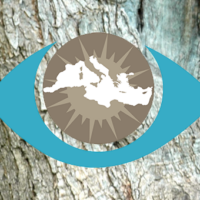 Mediterranean online catalogueA unique Documentation Center on the Mediterranean,
invested in sharing knowledge.
Mediterranean online catalogueA unique Documentation Center on the Mediterranean,
invested in sharing knowledge. Scientific productionThe scientific production of the CIHEAM Montpellier is the fruit of collaborations by our lecturer-researchers, associated experts, students and research partners.
Scientific productionThe scientific production of the CIHEAM Montpellier is the fruit of collaborations by our lecturer-researchers, associated experts, students and research partners. Becoming partnersCreating partnerships is part of the genetic make-up of the CIHEAM Montpellier... Join one of its projects or study programmes, support its actions.
Becoming partnersCreating partnerships is part of the genetic make-up of the CIHEAM Montpellier... Join one of its projects or study programmes, support its actions.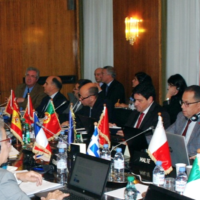 Ministerial meetingsThrough the Ministerial, CIHEAM contributes to the construction of a dialogue between the Mediterranean countries around questions relating to agriculture and the rural world.
Ministerial meetingsThrough the Ministerial, CIHEAM contributes to the construction of a dialogue between the Mediterranean countries around questions relating to agriculture and the rural world.